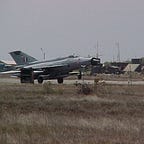On Accession and Secession and other matters
Kashmir is governed by Article 370 of the Constitution, under which it gets ‘special’ status, a position legislated for it on the insistence of Jawaharlal Nehru, of Kashmiri extraction himself. There was nothing to justify the special status or to put it another way, nothing to justify the granting of special status to Kashmir alone. Any of the entities which signed the accession to India should have been granted the same privileges on the same grounds. They were not.
Various Indians continue to be exercised over the special status. The Constitution is clear that this was to be a temporary provision and says that the President may repeal this provision, provided this is agreed to by session of the Constituent Assembly of J & K. Typically lawyerly worded and striking in its ambiguity. It is unclear whether this is to be the original assembly (now duly gathered to their fathers) or one duly constituted for the purpose. In the current circumstances this is academic.
Be that as it may, we now move on to the rest of India. Here secession is a way of life for the middle and upper classes.
We live in gated compounds, pay for our security and are guarded by uniformed security men belonging to the same class that we seek protection from. We have dispensed with the state’s erratic electrical provisioning and use diesel generator sets to tide over the perpetual power crisis. We obtain our own water with tankers and illegal borewells. We rarely use public facilities like the teacherless government schools that abound to provide a third rate education to our future servants, plumbers and electricians. Our children go to private schools and medical and engineering colleges which charge hefty capitation fees and equally impressive fees. At the end of this process, our children hale themselves off to management schools to teach them to manage factories staffed by those who have graduated from the government schools. Why we even dispose of our own garbage, within our own compounds through composting and other technologies. You thought the municipality did garbage collection? Think again. They are busy governing. We complain about the slum next door, but we would be lost without it. That is where our maids live.
We drive to work on potholed roads, where they exist. There is no traffic management worth the name. The cops are busy guarding the VIPs from the taxpayer. .
But we generally pay our taxes, to enable the government and the municipality to continue providing us the same benign services.
Every year hundreds of thousands of our youth write the civil sevices examinations. Every year the papers highlight the names of the most ‘brilliant’ of our students, whose number include doctors, engineers and management students, who have made in into the coveted shortlist and will now rejoice in the suffixes of IAS and IPS after their names. Their only wish it seems is to be allowed to serve their country, just like the dozens of Miss India finalists whose only wish was to uplift their fellow countrymen and women, especially the women whose deplorable state is a matter of great concern.
This process has gone on since 1947. The civil services continue to be staffed by the most brrrilliiianttt’ people this country can produce. They have done well. Their families live in plush compounds paid for by us; their children go to special schools like ‘Sanskriti’ in New Delhi, a private society but funded by the government, the Army, Navy and the Air Force, but those funding it have no say in management. The children go on to higher studies abroad, sometimes funded by the taxpayer through scholarships no one else has access to having never heard that such opportunities exist. The parents go on to UN appointments and jobs in the private sector after retirement. The brilliant people have done well for themselves.
After decades of management by brilliant people, India continues to languish at the bottom of the UN Human Development Report sometimes below countries from sub-Saharan Africa whom we affect to despise.
And what of our politicians, those who are dying to serve us every five years or so. They have done brrrilllianttly, even better than the civil service, considering that most of them did not go to Oxbridge. However they were quick learners and now roam around in cars with lights of various hues on top protected by over zealous policemen who prevent the elected from pollution by the unwashed. We glimpse them occasionally as they flash around the city in convoys of bullet-proofed cars with flashing beacons, sirens blaring, loud mouthed police with loudhailers before and ahead, traffic blocked as we swelter in the heat and curse silently and wait for the neta to pass as he does the nation’s business. You sometimes see them as they pass you while you go through airport security and they are wafted directly into the aircraft by fawning officials and hangers-on. If you are lucky you might get thrashed by one of them for obstructing his passage. Count it a privilege.
But these things are not our major concern. What did you have for lunch? Was it beef? Mutton is OK, but that looks suspiciously like cow. Kill the bum. We are a non violent race, have always believed in peace and love and offering our posteriors to anyone stronger. Jai Hind!.
Eid Mubarak to all my Muslim friends. We are not all like that.
